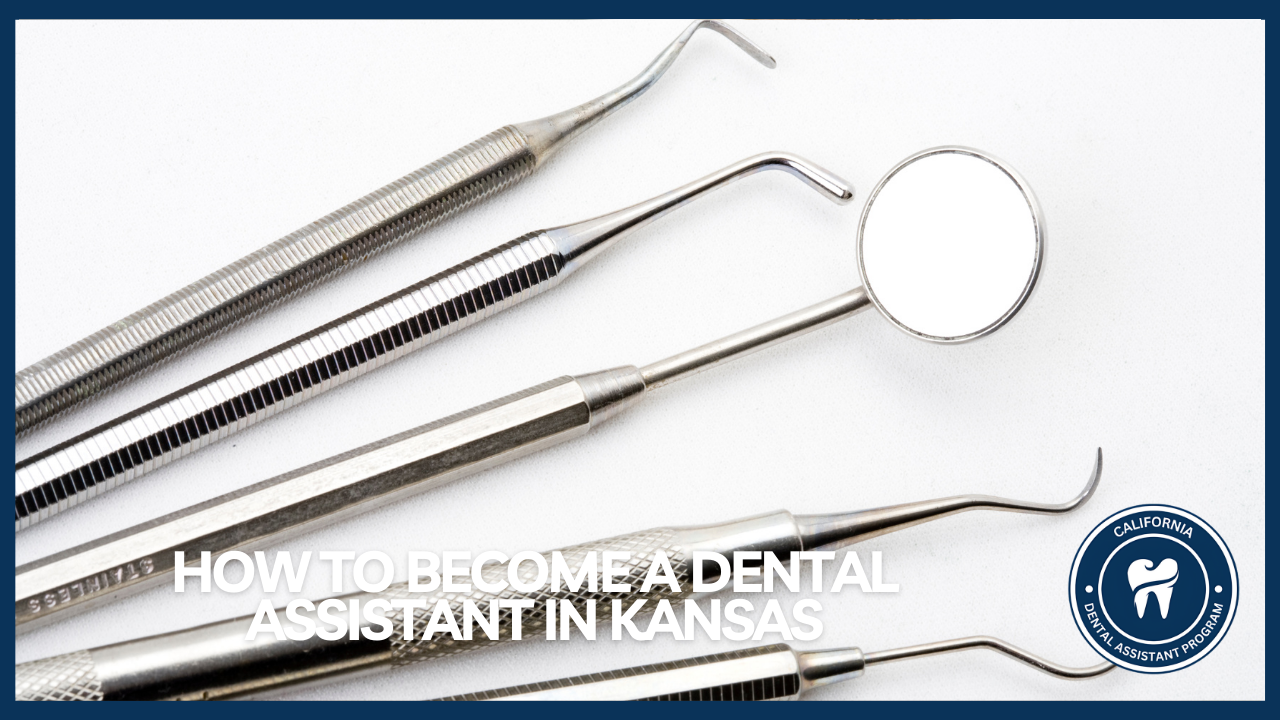
If you're considering a career as a dental assistant, you're tapping into a profession that's highly valued, increasingly in demand, and immensely rewarding. Dental assistants are the backbone of dental clinics, ensuring smooth operations and providing essential support to patients and dentists. For Kansas residents, this career path holds even more promise due to growing healthcare needs, competitive salaries, and career advancement opportunities in the state.
This guide will walk you through the steps to become a dental assistant in Kansas, from understanding the role and required skills to exploring educational options and career growth potential. By the end, you'll have all the information you need to start your career in this growing field.
Choosing to pursue your dental assisting career in Kansas comes with several advantages.
Kansas is experiencing population growth coupled with an expansion of healthcare services. The demand for well-trained dental assistants has been steadily climbing to keep up with increasing oral healthcare needs. This creates abundant job opportunities for aspiring dental assistants throughout the state.
Dental assistants in Kansas enjoy competitive pay compared to the national average. According to the U.S. Bureau of Labor Statistics (BLS), the median annual wage for dental assistants nationwide is $42,510. Kansas offers salaries that are in line with, if not slightly above, this national figure, depending on factors like experience, certification, and location within the state.
Beyond entry-level roles, dental assistants in Kansas can pursue avenues for specialization, such as orthodontics or oral surgery, or advance within the industry to become Expanded Function Dental Assistants (EFDA).
Dental assistants enjoy meaningful work knowing they positively impact patients’ oral health and overall well-being. From alleviating dental anxiety to ensuring effective dental care, dental assistants play a vital role in improving people's quality of life.
Dental assistants are multi-taskers who perform a combination of clinical and administrative duties. Their responsibilities include:
Here’s a step-by-step guide to starting your career as a dental assistant in Kansas.
Enroll in a dental assisting program accredited by the Commission on Dental Accreditation (CODA) or pursue on-the-job training under the supervision of a licensed dentist. Accredited programs provide in-depth training, including coursework, labs, and clinical experience.
For EFDAs or specialized roles, Kansas may require state-specific credentials. This additional training broadens your scope of practice and increases your earning potential.
Although not mandatory, you can pursue the Certified Dental Assistant (CDA) credential from the Dental Assisting National Board (DANB). This national certification sets you apart as a highly skilled and qualified dental assistant.
Hands-on training, such as externships during your education or on-the-job opportunities, is essential for building competency and confidence in real-world dental settings.
To excel in this field, the following skills are essential:
Selecting the right educational program is crucial for your success. Look for a program that meets Kansas Dental Board requirements or is CODA-accredited. One standout option is the California Dental Assistant Program, which partners with institutions in Kansas to offer:
Interested? Apply today to speak with an admissions expert and start your training!
The U.S. Bureau of Labor Statistics projects above-average growth for dental assistants across the country. Kansas mirrors this trend with its rising demand for skilled professionals in dental clinics and specialized practices.
Many dental assistants in Kansas pursue advanced roles in orthodontics, oral surgery, or other specialties, earning higher salaries and gaining expertise.
A career as a dental assistant in Kansas is not only secure but also extremely rewarding. Whether you're just exploring this path or ready to begin training, the opportunities are abundant. From providing essential patient care to advancing within the industry, dental assisting offers a fulfilling career.
Take the first step by researching accredited programs and enrolling in one that aligns with your goals. Programs like the California Dental Assistant Program make it easier than ever to gain the skills and credentials needed to launch your career. Apply today and take that first step toward a bright future!